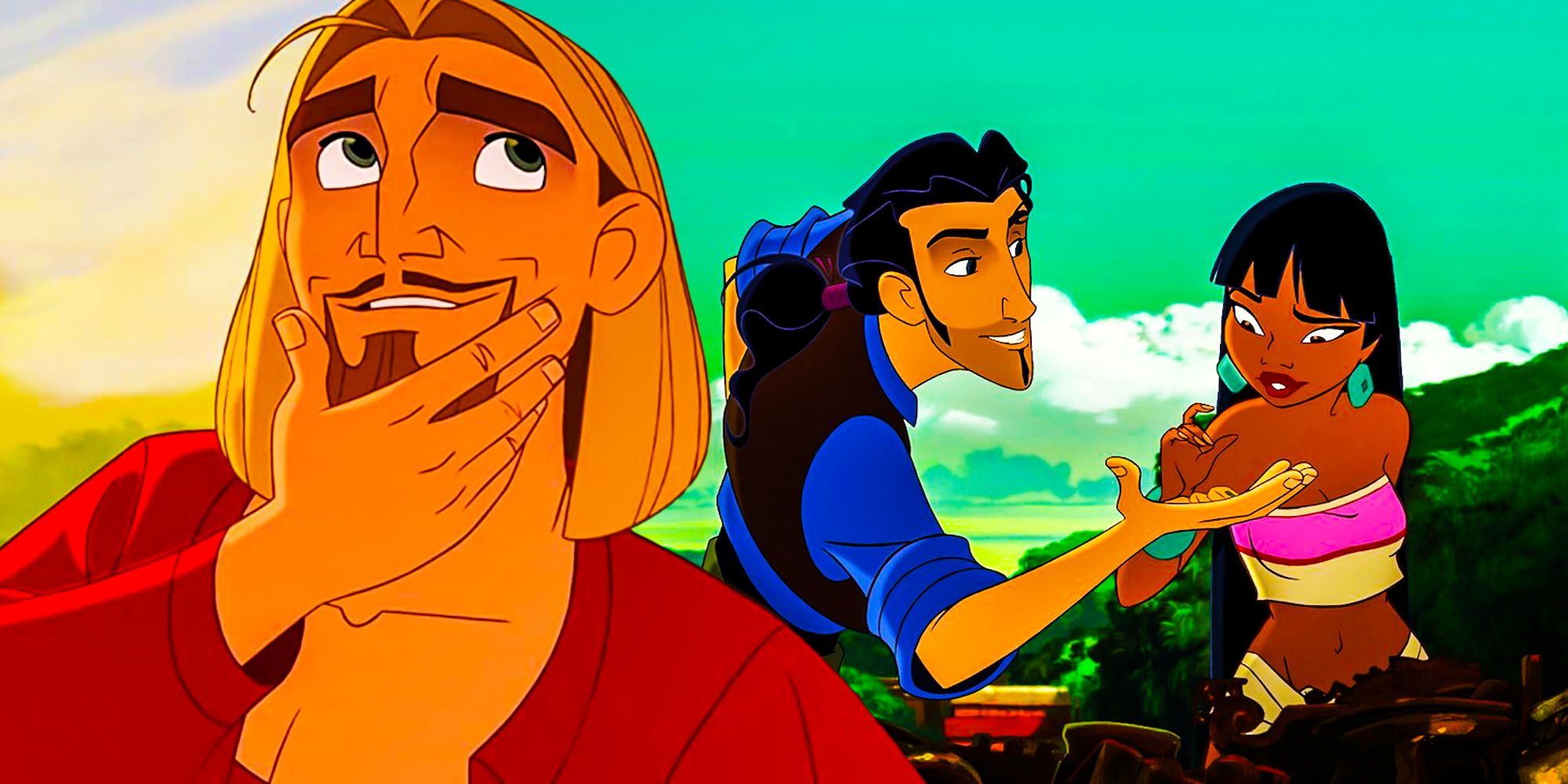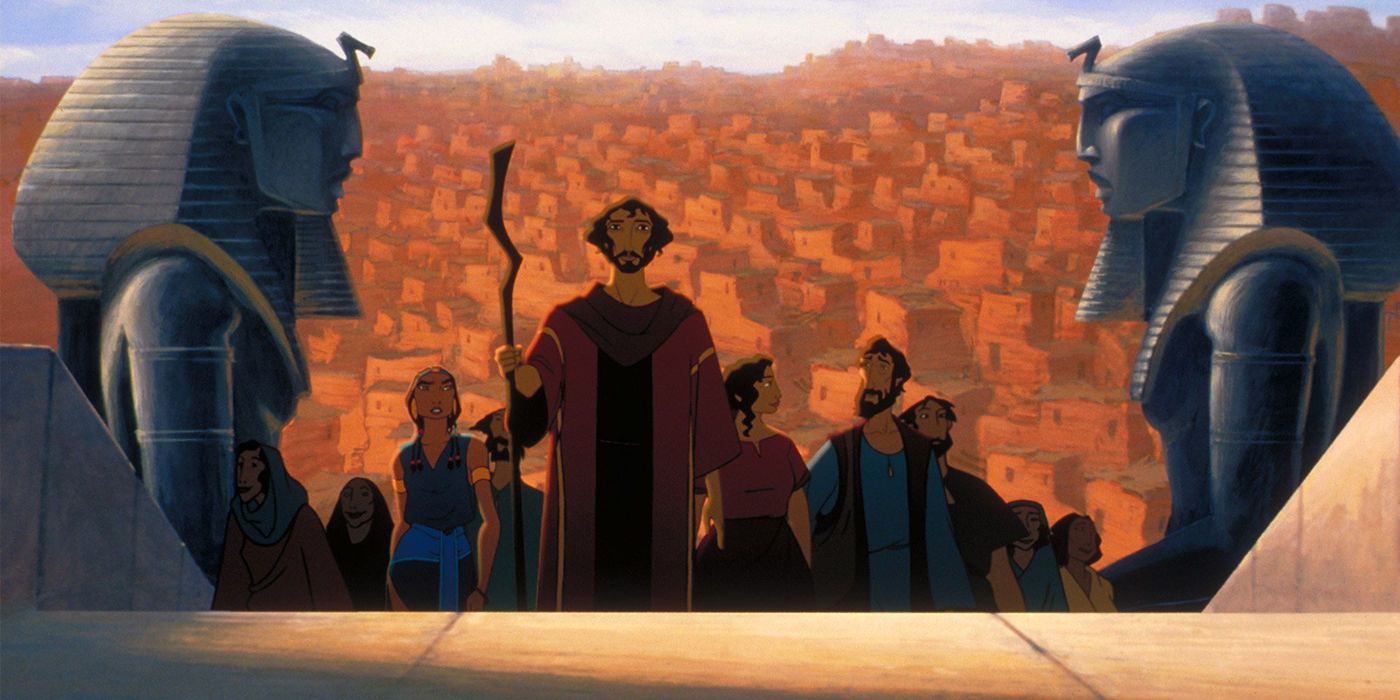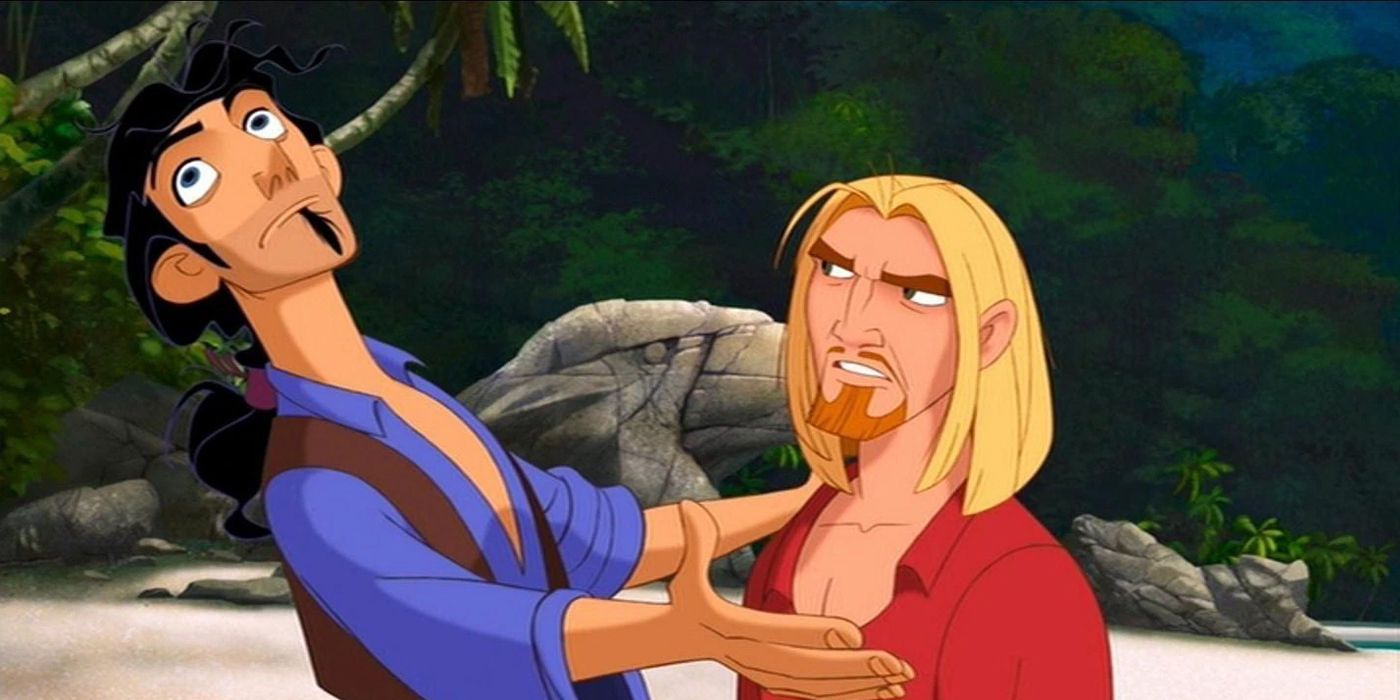Despite the involvement of Shrek and Pirates of the Caribbean's creators, 2000’s The Road to El Dorado was a box office flop that many critics hated upon release, so how did the animated adventure become beloved over twenty years after its initial failure? Released in 2000, The Road to El Dorado was an expensive flop at the time of its release. The story of two amoral adventurers who stumble across the titular lost city of gold, The Road to El Dorado earned mixed reviews and abominable box office returns despite boasting an impressive cast and a soundtrack from The Lion King hitmaker Elton John.
However, the years have been unexpectedly kind to The Road to El Dorado, which is undergoing something of a revival online. The movie has a massive fanbase on the internet, many of whom consider the animated adventure as much a classic as the more conventionally successful Pirates of the Caribbean and Shrek movies (both of which were co-written by The Road to El Dorado’s screenwriters, Terry Rossio and Ted Elliott). This has understandably led many critics to reconsider their original opinions on the movie and led audiences to question why The Road to El Dorado is now so well-remembered despite being a flop upon release.
Despite the success of its creators, The Road to El Dorado was widely panned upon release, with most reviewers accusing the movie’s story of being too derivative and the animation style of being too closely modeled on the then-recent success of Disney's renaissance. However, these were not the only issues that plagued The Road to El Dorado. There were also questions of reviewers being unsure who the movie’s intended audience was as, like so many critically hated cartoons before it, The Road to El Dorado included too much adult humor to be a kid-friendly, Disney-style children’s movie, but nowhere near enough mature content to be considered adult animation. Now, however, The Road to El Dorado has been reappraised and is seen in a far better light, with these very flaws (the lush traditional animation, the mature jokes) being seen as the movie’s strong suits. So, what changed in the intervening decades that transformed the reception of The Road to El Dorado?
The Road To El Dorado Was Released At The Wrong Time
Released in 2000, The Road to El Dorado arrived at the wrong time for a traditionally animated movie. The market was flooded in recent years by the likes of The Lion King 2: Simba’s Pride, Anastasia, Tarzan, Mulan, and the superficially similar historical action-adventure comedy The Emperor’s New Groove. Not only that but the rapidly growing number of 3D animated movies that were starting to challenge 2D’s animation industry monopoly. Pixar was releasing another critically acclaimed 3D animated movie every year, and even Dreamworks itself (who produced The Road to El Dorado) was pushing Antz, Shrek, and The Prince of Egypt in an attempt to displace Disney’s animation industry monopoly.
However, The Road to El Dorado was released at the perfect time for rediscovery by kids who grew up with the movie being a forgotten flop. After all, although financially unsuccessful, The Road to El Dorado was still successful enough to be seen by Generation Z, but not so big that it earned numerous sequels, spin-offs, and reboots. The adult humor and genuinely funny character comedy of The Road to El Dorado are no more deserving of cult status than, for example, the similarly mature but still kid-friendly Pirates of the Caribbean sequels, but the fact that the movie was never over-exposed means young viewers have fond memories of The Road to El Dorado and have re-popularized the movie as a result. In contrast, more successful movies of the era were over-exploited and turned into never-ending franchises, with many still producing spin-offs and sequels and thus making it impossible for fans to be nostalgic for an ongoing project.
The Road To El Dorado's Impressive Cast Helped & Hurt The Movie
With Kevin Kline, Rosie Perez, and Kenneth Branagh headlining, The Road to El Dorado boasts a more impressive lineup than many live-action action-comedies of the same era, and the cast’s talents transfer well to animation. However, while both Kline and Brannagh were relatively well-known leading men of the time, neither boasted the clout of Shrek’s dream team Eddie Murphy and Mike Myers. Fresh off Austin Powers and Dr. Dolittle, Murphy and Myers were a superstar pairing at the height of their popularity, and none of The Road to El Dorado’s voice cast had anything close to the star power of Shrek’s ensemble.
However, this same apparent weakness helped elevate the movie’s popularity in years to come. Animation veteran Frank Welker and cult character actor Edward James Olmos rounded out an already impressive cast, meaning The Road to El Dorado did not rely on famous faces for all of its supporting roles. This resulted in the movie aging well thanks to solid performances while, in contrast, its competitors like the Shrek series leaned into its pop-culture clout and produced sequels that increasingly relied on stunt casting the likes of Justin Timberlake instead of focusing on story and character.
The Road To El Dorado's Formula Works Better Now Than It Did in 2000
Much like its contemporaries Shrek and The Emperor’s New Groove, The Road to El Dorado used a classic buddy comedy framework for its story of two mismatched antiheroes forced to work together by circumstance. However, unlike those two hits, this screenplay from Elliott and Rossio relied less on anachronistic sight gags and more on the interplay between the pair, showcasing the witty back and forth that would go on to make the Shrek franchise equally beloved. However, Shrek’s pop culture-based gags inevitably dated the movie (although some viewers argued their specificity gave the film a uniquely '00s charm), while there is a timelessness to the appeal of The Road to El Dorado that was later used as the blueprint for the Pirates of the Caribbean movies.
The contrast between Miguel’s cunning bravado and Tulio’s neuroses makes their back and forth strong enough to carry a live-action adventure, meaning the stunning animation of The Road to El Dorado and its charming soundtrack are icing on an already impressive cake. It is this character comedy that forms the basis of the movie’s cult following, whether it is in the form of Tumblr gifs, often-quoted lines, or fandom shipping. Miguel and Tulio’s charismatic interplay elevates The Road to El Dorado from being a solid family film to a stellar adventure comedy for all ages, making the flop ripe for rediscovery by older viewers who were too young to pick up on its wit the first time around.




